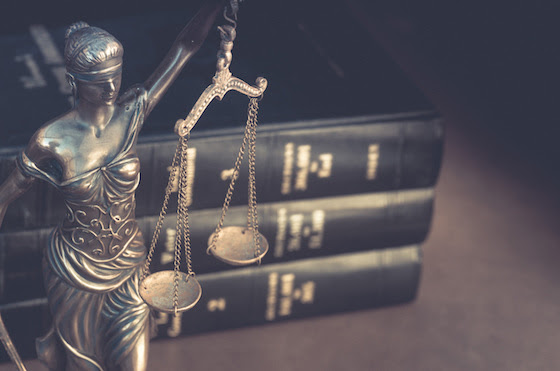
Is God a license to discriminate?
The U.S. Supreme Court will listen to oral arguments on that very question tomorrow, Dec. 5, when it hears the case Masterpiece Cakeshop v. Colorado Civil Rights Commission. Masterpiece Cakeshop, a Colorado bakery, violated the state civil rights act with its refusal to bake a gay couple’s wedding cake. The bakery will argue that it has a religious right to discriminate and a free speech right not to serve customers equally.
In its brief before the Supreme Court, the Freedom From Religion Foundation explains that the bakery is seeking to redefine religious freedom and, more specifically, the right to the free exercise of religion that the First Amendment protects.
“That right has always been understood as the right to unfettered thought — freedom to believe whatever religion we choose, or none at all, without government interference of any kind,” the brief clarifies. “But the right to believe as we choose has never encompassed a right to act as we choose. Never has a citizen’s right to the free exercise of religion under the First Amendment — let alone a corporation’s — been understood to include the ability to engage in conduct that infringes on the rights of others.”
There is a distinction between belief and action, FFRF asserts: “The freedom of thought and belief — freedom of conscience — is absolute. But the freedom to act on religious beliefs in every circumstance of one’s life is not absolute, and religious conduct can and must be burdened by civil laws, especially those that protect the rights of others.”
FFRF points out that this very distinction is embodied in the language of the First Amendment itself. “‘Congress shall make no law . . . prohibiting the free exercise’ of religion. Though it may not be prohibited, free exercise can be burdened, encumbered, hampered, impeded, strained, hindered, and obstructed — and can certainly be burdened when it infringes the rights of others,” it states.
To support its arguments, FFRF draws on Supreme Court cases dating back to 1879: “Can a man excuse his practices to the contrary because of his religious belief? To permit this would be to make the professed doctrines of religious belief superior to the law of the land, and in effect to permit every citizen to become a law unto himself.” The late Justice Antonin Scalia reiterated this point, quoting from the very same text in a 1990 case.
FFRF’s brief explains to the Supreme Court justices that the central question is not whether the government can regulate religiously motivated action, but “where to draw the line when it comes to government regulation of religiously motivated action.” The state-church watchdog calls on Thomas Jefferson for support: “No belief, no matter how fervent, gives citizens a right to infringe the rights of others while breaking the law.”
The state-church separation group also invokes Martin Luther King Jr.’s 1963 “Letter from a Birmingham Jail” and the recent violence in Charlotte, N.C., to explain that granting a license to discriminate in the name of God will extend to all racial and religious minorities and, of course, nonbelievers. FFRF expounds on the long history of plaintiffs arguing that their religion prevented them from treating black Americans equally and warns that a decision in favor of the bakery will be a decision in favor of racism.
The brief concludes with an allusion to Jefferson: “When one’s religion tells them to violate a law meant to protect the rights of others — to pick a pocket or break a leg — that person cannot expect an exemption. If the baker’s religion demands that he refuse to offer equal service to gay couples, as the law of Colorado demands, it is not for the law to bend to his religion, but for his action to bend to the law.”
The Supreme Court should take note before arriving at its decision.
The Freedom From Religion Foundation, a national nonprofit organization based in Madison, Wis., is the largest U.S. association of freethinkers, representing approximately 30,000 atheists, agnostics, and other freethinking American citizens.
FFRF’s brief was drafted by Associate Counsel Elizabeth Cavell with help from Legal Director Rebecca Markert, Senior Counsel Patrick Elliott, Associate Counsel Sam Grover and Director of Strategic Response Andrew L. Seidel.
Seidel, who is also a constitutional attorney, recently gave a talk at the University of Wisconsin on the dangers of the attempt to redefine religious freedom. It can be viewed here.

